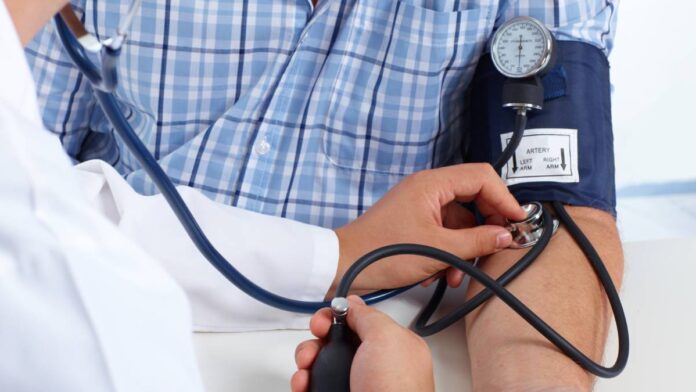On my last few visits to see the GP, my blood pressure has been a little high. Not alarmingly high, but high enough for Dr Richard to make note of it and discuss the possibility of medication.
As I suspect many people do, I railed against the idea. Why? I think partly because I’m determined to lower my blood pressure ‘naturally’, through better diet and weight loss. So far, not so good in that department.
I think there’s also an element of not accepting that I’m getting older. I’m in the final year of my 50s and I like to pretend that I still have the body of a 30-year-old. In recent years my knees and shoulders have been doing their best to remove that pretence, but I’m very stubborn.
By ignoring the blood pressure readings, I can pretend it’s not an issue. I never have chest pains or obvious indicators of heart trouble. ‘Out of sight, out of mind’ and all that stuff.
But in my more lucid moments I know I’m kidding myself. This is one of those moments. So I’m asking myself, why is my blood pressure elevated? Is it purely a function of diet (mine’s not great) and lack of exercise (the knees and shoulders aren’t helping)? Or is age a factor in blood pressure, too?
Blood pressure as you age – what we know
Does our blood pressure rise as we age? The Australian Bureau of Statistics (ABS) says yes, absolutely. Figures released in December showed a clear and steady increase in blood pressure with age. This was true for both self-reported cases and as measured through health facilities (see chart below).
So now that we know blood pressure is likely to increase with age, my next question is, why? And the answer is straightforward. Most people around my age or older will know the feeling of stiffness when we don’t move for a while. Well, it turns out that it’s not just our joints that stiffen up as we age – our arteries do too.
Stiff arteries mean restricted blood flow, which means higher blood pressure. Of course, the rate of stiffening will differ among the population, so this will not be a problem for everyone my age.
It will, however, be a potential problem for some of us, so getting your blood pressure checked regularly makes sense. This becomes more apparent when we factor in the reality that many people with high blood pressure have no symptoms.
I’m one of those people, and it’s high time I acknowledged that ‘no symptoms’ does not translate to ‘no risk’.
Mitigating that risk
So, what can people in my situation do to reduce the risk of heart attack or other adverse health events? The simplest thing is, communicate with your health specialist. Not so simple then is following your GP’s advice.
At least not for me. Dr Richard advised me to get my own blood pressure monitor and take regular readings. I dutifully did so, until I moved house, at which point the monitor was packed away. It’s now in one of a bunch of boxes in a storage facility, not doing me any good at all.
So, getting to know what my blood pressure actually is will be a start. The next step will be management if required. Lifestyle changes will almost certainly help reduce it. And those changes will be the ones you are familiar with: lifestyle changes that may help reduce high blood pressure include a healthy diet, lowering alcohol and salt intake, losing excess weight, getting more exercise and quitting smoking. And, though it pains me to say it (just finishing my second coffee of the morning), reducing your caffeine intake.
Blood pressure medication
This will not be easy for some. And others who manage to achieve some or all of the above may still have elevated blood pressure. The solution for those people may indeed be medication.
There are several blood pressure medications available, and your health professional will be best placed to advise you on what’s appropriate for you.
Having to take medication might not be an exciting prospect, particularly if you’re already taking other medications for other conditions. For me, adding another daily tablet might mean getting a bigger daily pill dispenser!
Still, that’s surely a better alternative than having a heart attack.
Do you know what your blood pressure is? When was the last time you had it checked? Let us know via the comments section below.
Also read: Untreated high blood pressure linked to dementia
Disclaimer: This article contains general information about health issues and is not advice. For health advice, consult your medical practitioner.


I certainly know what it is. It gets taken every fortnight when I give plasma. That’s not why I give plasma, but it is a side-benefit. I urge everyone who can to give plasma or whole blood regularly.
Couldn’t agree more with Rod. BP gets checked every fortnight when I donate plasma and I also have a BP monitor at home which I use occasionally.
I’m currently on BP medication which keeps my BP very close to the ideal 120/80 and the dosage hasn’t changed in 25 years.
One very small tablet every morning for the knowledge that all is under control.
Very easy to do.
My BP is well controlled however, for a while now, I’ve noticed a big difference between systolic and diastolic readings eg 126/52.